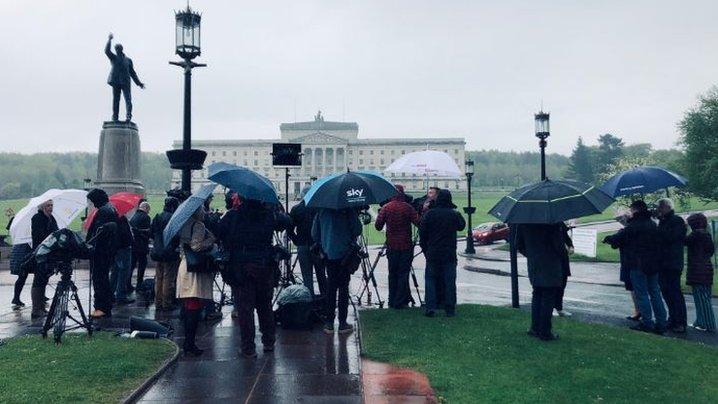Apart from Brexit: What else happened in Parliament?
- Published
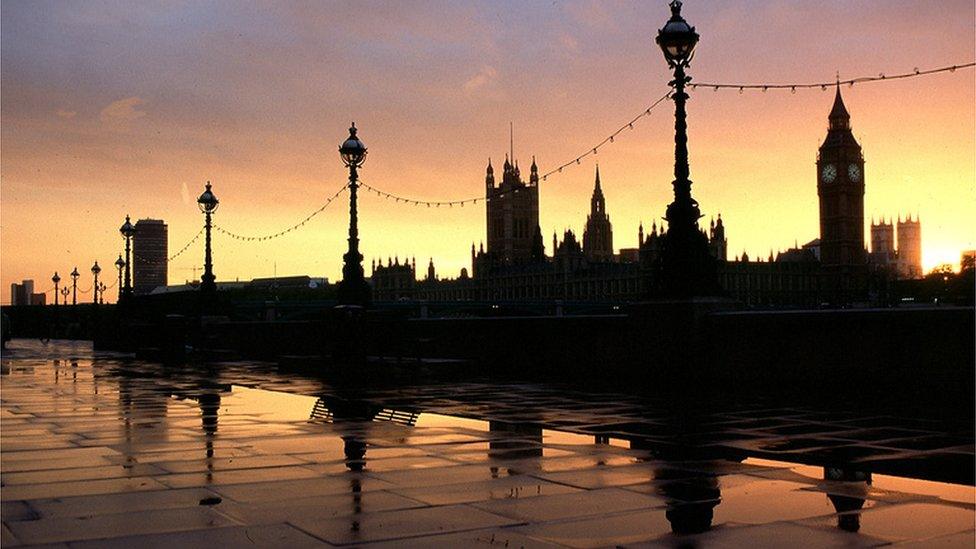
In the last few months, Brexit has elbowed almost all other political stories off the headlines.
But what else has happened in Parliament?
Here are just a few of the things MPs and peers were getting up to while the Brexit battles rumbled on.
Ivory dealing banned in the UK

The elephant population is declining, in part due to poaching
On 20 December, a government bill banning the dealing of ivory items became law.
Some items were exempt from the bill including items of "outstandingly high artistic, historical or cultural value", portrait miniatures painted on thin slivers of ivory and those pieces with only a small amount of ivory.
Sales to and between certain museums will also be exempt from the ban.
The act is expected to come into force in late 2019.
Upskirting banned
Gina Martin campaigned for the law to be changed after a man took a picture up her skirt
After a popular campaign led by Gina Martin, who was a victim of "upskirting" in 2017, the Voyeurism (Offences) Act became law in February.
The proposal to introduce a new offence started as a private members' bill from Liberal Democrat MP Wera Hobhouse.
But after a controversial blocking of its passage by Conservative MP Christopher Chope last year, the government co-opted the plans and pushed the law through parliament as a government bill.
Ms Martin said the new law was "just the beginning," urging people to raise their voices and report instances of upskirting.
Zombie knives and corrosive substances
The Offensive Weapons Act aimed to tackle knife crime by introducing restrictions on who can buy particular types of knives.
Following a spate of acid attacks, the act also banned the possession of corrosive substances in public places. A government consultation showed that 90% of respondents supported the changes.
Home Secretary Sajid Javid said anyone who carries acid to attack people is a "coward who deserves to face the full force of the law".
Strengthening counter-terrorism laws
Police and security services were given new powers in February under the Counter-Terrorism and Border Security Act.
The law increases sentences for some terrorism offences and strengthens the rules against streaming or downloading terrorist material.
Coming soon after the poisoning of Sergei and Yulia Skripal in Salisbury, the part of the law that received the most attention introduced new powers to question and detain people as they enter the country to see if they are involved in "hostile state" activity.
Compulsory sex education introduced
In February, the government announced that sex and relationships education would be made compulsory in all schools in England - previously sex education had only been compulsory in council-run schools.
Speaking in the House of Commons, Education Secretary Damian Hinds said it was "almost 20 years on from the last time guidance on sex education was updated," adding "there is a lot to catch up on".
The change was generally welcomed by opposition parties and charities; however, over 110,000 people signed a petition on the Parliament website demanding the right to opt their child out of sex education lessons.
Max and Keira's law
"She's a hero" - Max, his parents and Keira's parents tell the story that gave the legislation its name
Also in February, Parliament approved a bill introduced by Labour's Geoffrey Robertson which sought to ensure that all adults in England would be considered potential organ donors unless they opt out.
The law was named after nine-year-old Keira Ball - whose organs were donated to others when she died in a car crash - and eleven-year-old Max Johnson - the recipient of Keira's heart.
80% of people in England support organ donation but only 38% have opted in.
Also known as the Organ Donation (Deemed Consent) Act, the law will come into force in 2020.
More powers to tenants
On 20 March, a new law came into effect allowing tenants to take their landlords to court if their homes are not "fit for human habitation".
The bill, which applies in England and Wales, had been introduced by the backbench Labour MP Karen Buck.
She said her bill would help protect the most vulnerable tenants who were not able to "fight their corner".
Her bill was supported by the government who said a "stubborn, hardcore minority" of rogue landlords were being put on notice.
Bringing data laws up to date
In 354 pages, the Data Protection Act replaces its 20-year-old predecessor and introduces in new measures to bring rules into the social media age.
The law - passed in May 2018 - also introduced the GDPR rules, which aims to protect privacy and security across Europe.
Civil partnerships for heterosexual couples
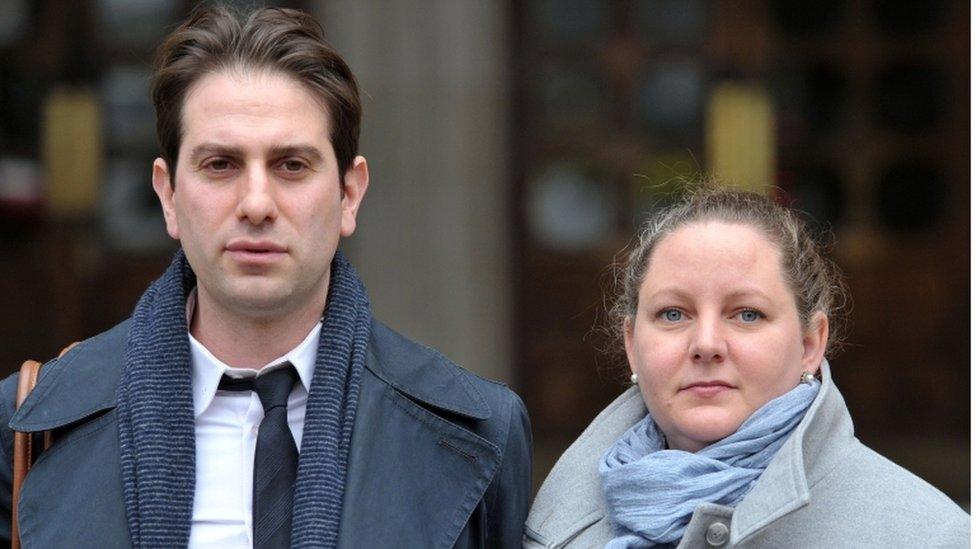
Charles Keidan and Rebecca Steinfeld fought a legal battle for the right to have a civil partnership
Under a law passed in March, opposite sex couples in England and Wales will be able to have a civil partnerships, by the end of the year.
Civil partnerships were originally introduced for same-sex couples at a time when they could not marry.
However, some heterosexual couples also wanted to get a civil partnership, including Rebecca Steinfeld and Charles Keidan who took their battle to the Supreme Court.
The couple said the "legacy of marriage" which "treated women as property for centuries" was not an option for them.
The bill was introduced by Conservative Tim Loughton who described the move as "a strong pro-family measure which, crucially, encourages commitment and stability".
His proposal received support from the government and Labour; however, Conservative Michelle Donelan argued that it would "confuse and complicate commitment, rather than encouraging it".
Concern over sky lanterns raised

On 27 March, MPs were preparing to take part in a set of indicative votes on Brexit.
First, however Labour MP Ruth George introduced her bill seeking to ban sky lanterns.
She told MPs that a sky lantern had caused significant fires in recent years including the Smethwick fire in 2013 which lasted for three days, caused £6m-worth of damage and injured 16 firefighters.
The bill has yet to move to the next parliamentary stage, and without government support it is unlikely to become law.
Aerial footage shows the extent of the fire
FGM bill overcomes objections to become law
In February Conservative Christopher Chope came under fire for blocking the passage of a bill aimed at protecting children from female genital mutilation (FGM)
Fellow Tory Zac Goldsmith described his actions as "appalling" but Sir Christopher said he was not against the bill itself but at the procedure used to pass the legislation.
Despite his objections to the process, the bill became law on 15 March.
Northern Ireland elections were delayed... again
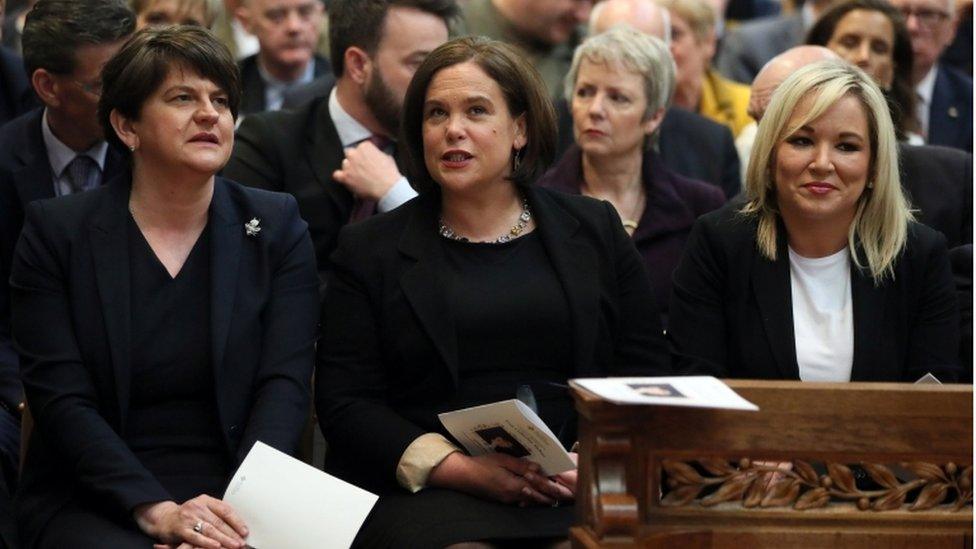
DUP leader Arlene Foster, Sinn Fein leader Mary Lou McDonald and Sinn Fein Vice President Michelle O'Neil attended the funeral of murdered journalist Lyra McKee together
The devolved government in Northern Ireland has been suspended since 2017 when the resignation of Sinn Féin's Martin McGuinness triggered the collapse of the Northern Ireland Assembly.
This has meant that for over two years decisions on areas such as health and education have been put on hold.
On 21 March Northern Ireland Secretary Karen Bradley told MPs that she would be delaying assembly elections.
Despite her "reluctance" to do this, Ms Bradley said it would give the political parties "more space to come back together".
The prospect of that happening had seemed unlikely.
However, following the murder of journalist Lyra McKee politicians came under pressure to solve the impasse and a fresh round of talks aimed at restoring devolution began on 7 May.
- Published29 May 2019
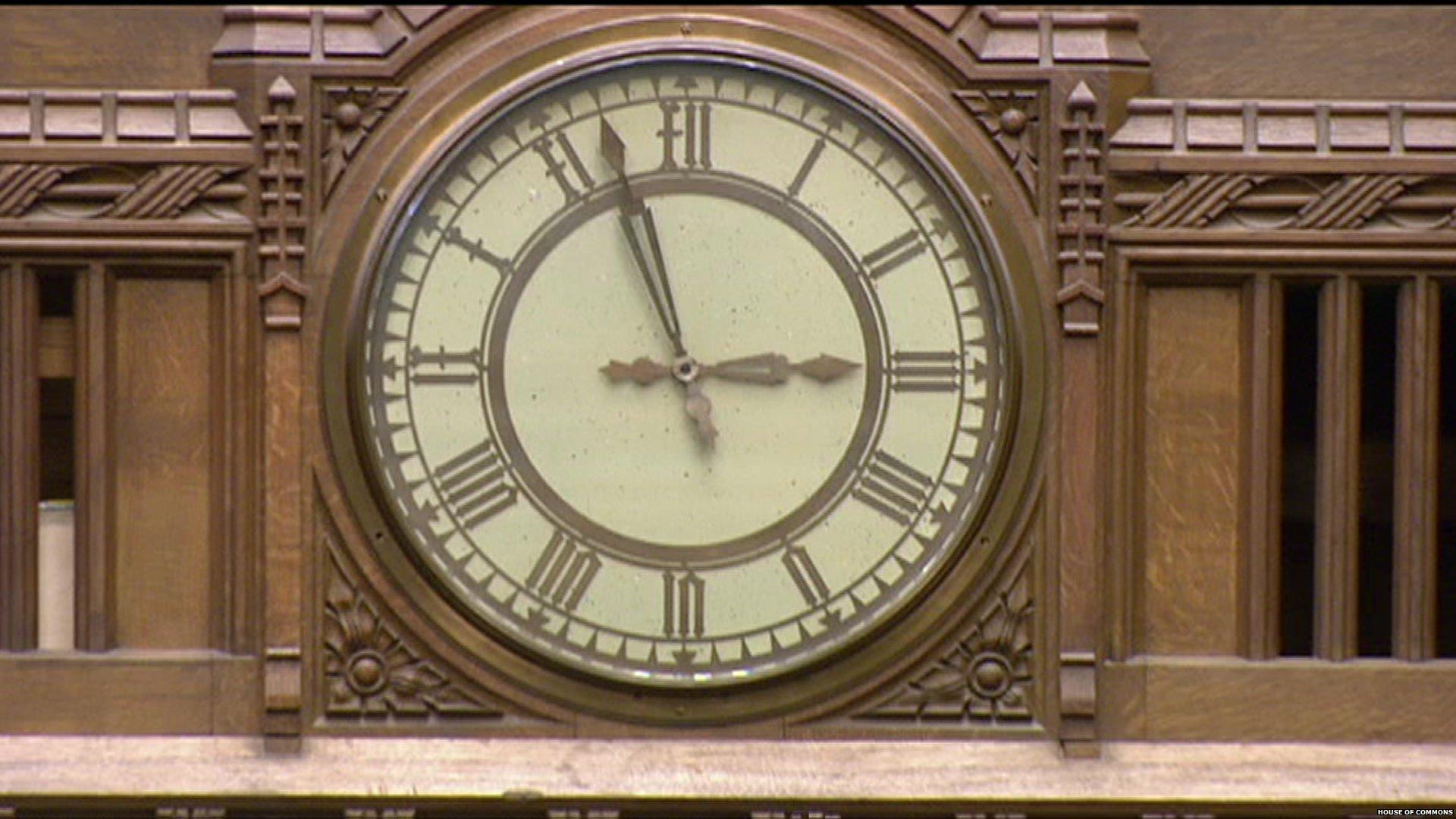
- Published13 July 2020
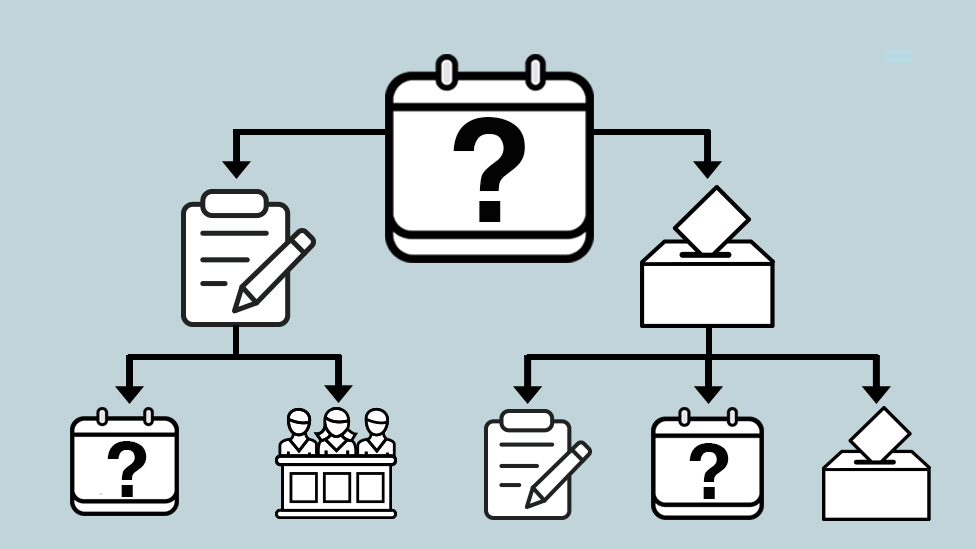
- Published25 February 2019

- Published26 February 2019
- Published7 May 2019
